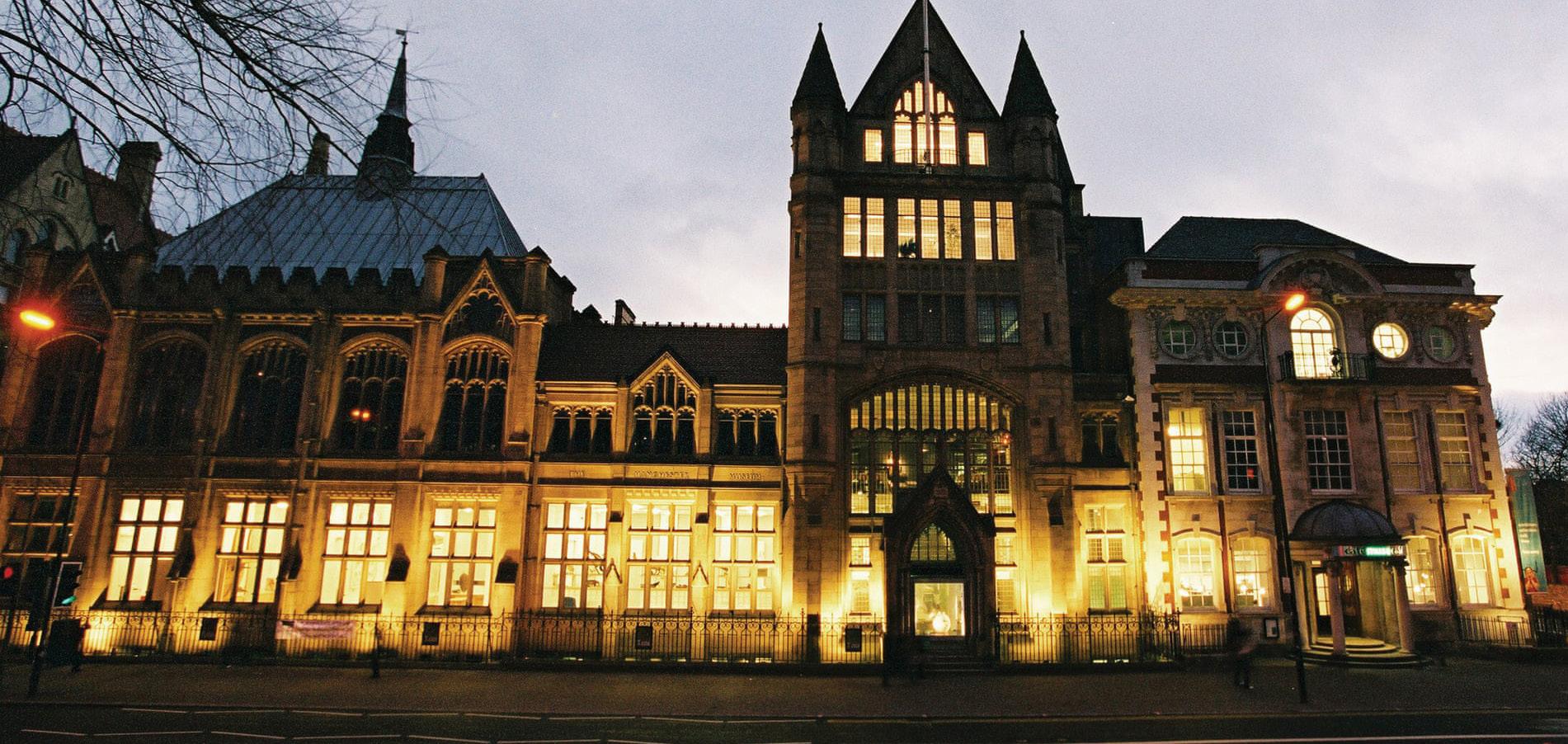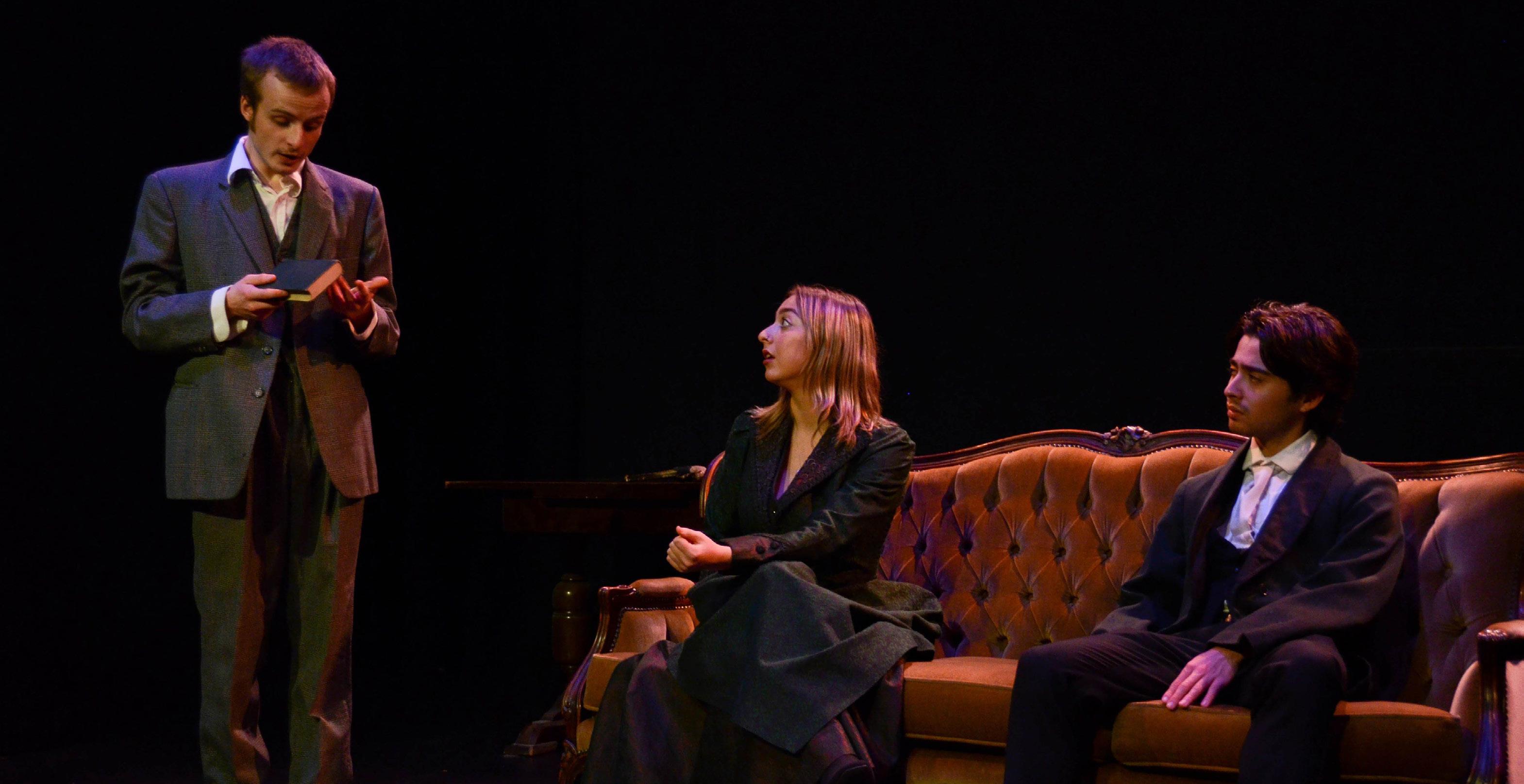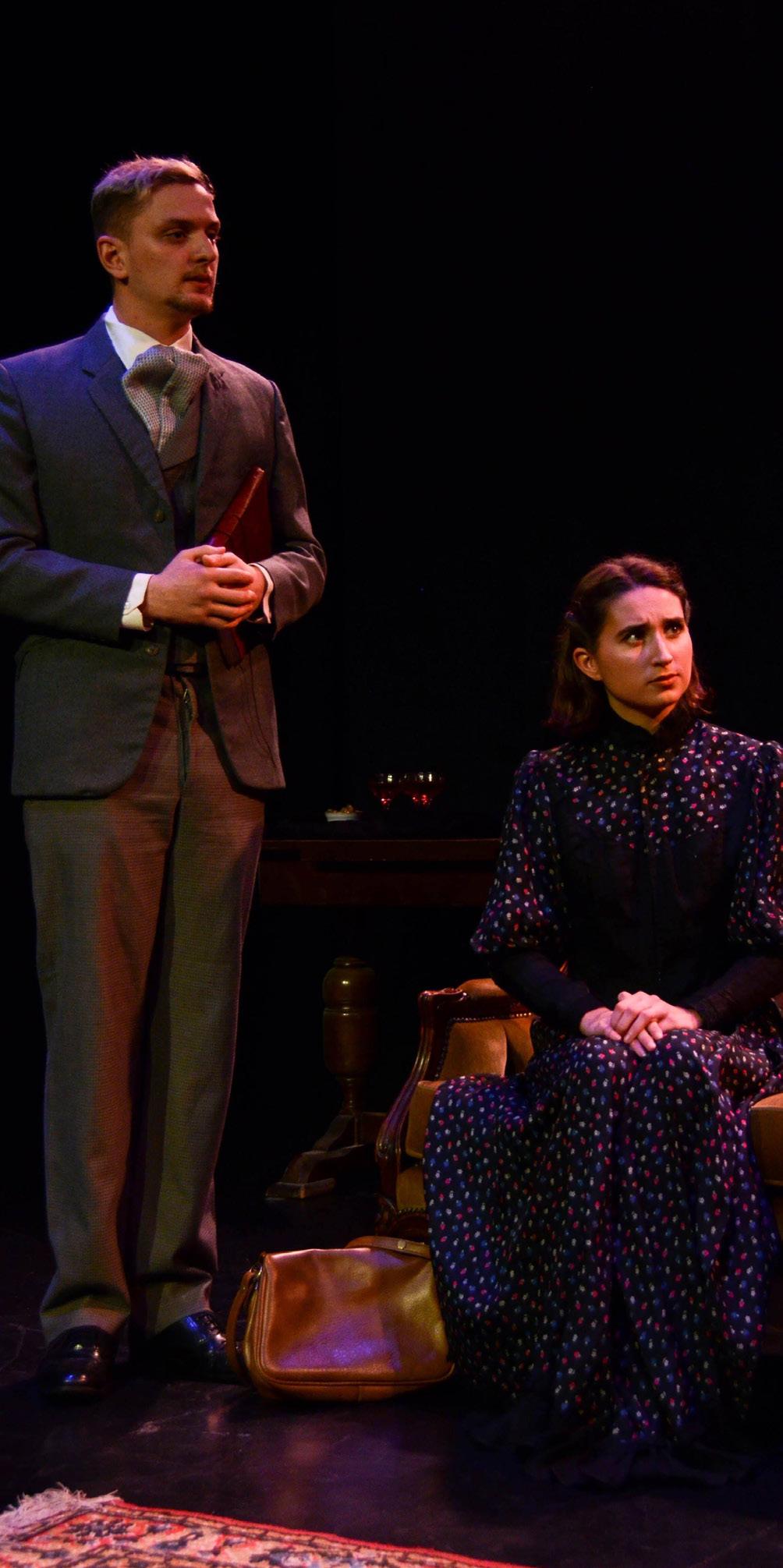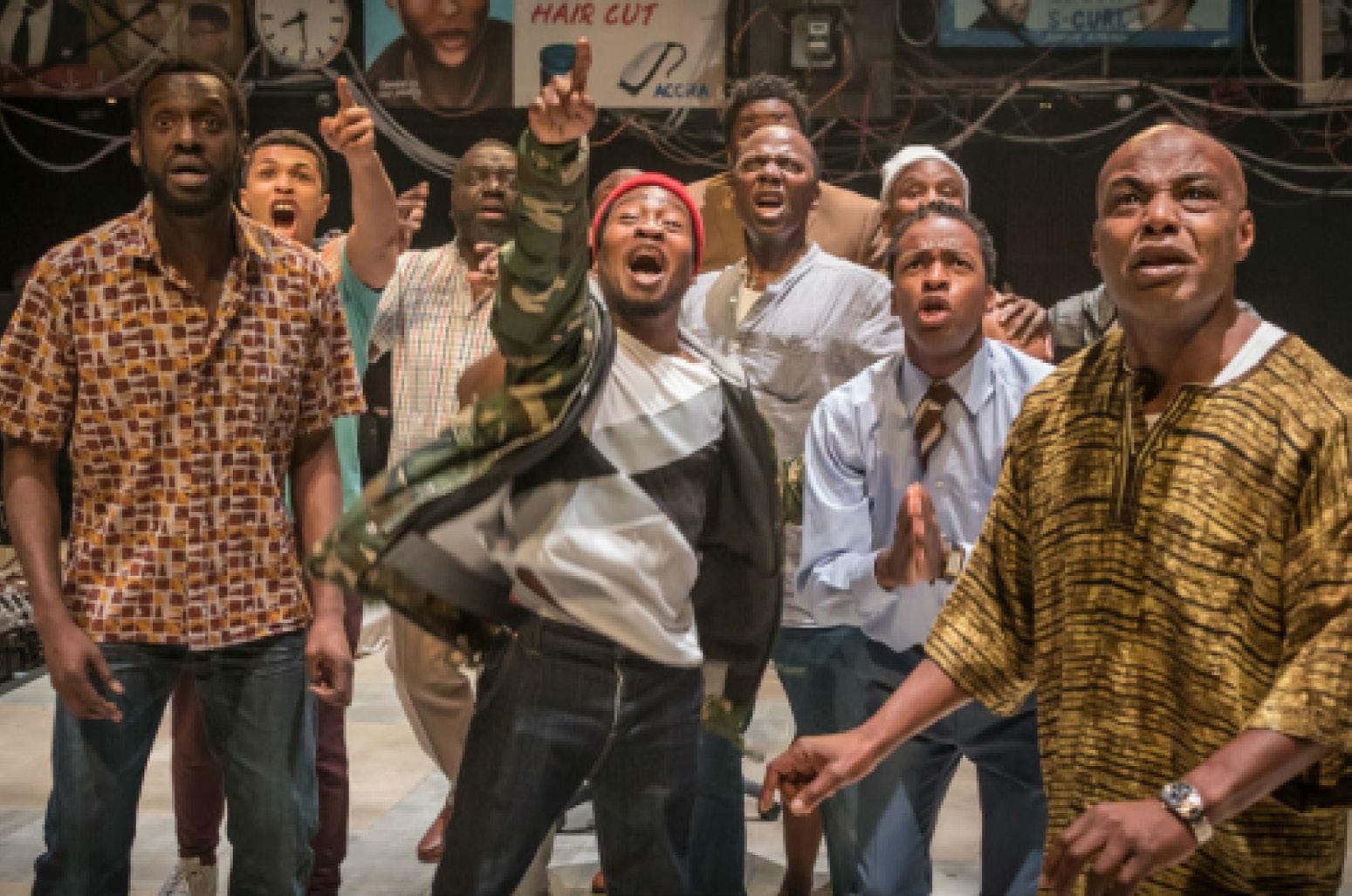
18 minute read
David Letterman Interviews Shah Rukh Khan
Introduction‘: David Letterman Interviews Shah Rukh Khan
‘If I can‘t do it with skill and talent, then I‘d better get into the hearts of people. And if they are loving me, let me just be nice and good about it.‘
Advertisement
Image Credit: Alison Cohen Rosa/Netflix
15 As one of the most outspoken, charming and enthralling voices of British poetry, Benjamin Zephaniah effortlessly captures the core of what it means to be Black in the modern world. This 2001 collection in particular is one that confronts the realities of societal inequality in a hard-hitting, candid manner albeit with a flair of dark humour. What‘s more, despite being published just shy of twenty years ago, this is a book that still feels chillingly apt in the current political climate. When David Letterman addresses his audience at the beginning of his show, ‘My Next Guest with David Letterman,’ he describes the fact that everyone in the room feels a general sense of ‘I don’t know.’ Which, somehow, everyone agrees that they understand exactly what he is talking about. Indeed, considering Letterman is introducing onto his stage a pivotal representative of India and it’s cinematic industry, adored by a fanbase of 3.5 Billion people (a whopping 43% of the world’s population), Letterman’s excited bewilderment poses as a perfect summary of the sentiment and surrealism cinemalovers experience when it comes to Shah Rukh Khan. The hour-long special proves an incredibly insightful special that both rejuvenates the boyish and humble charm radiated by Khan that fans have become familiar with over his near-30 year career, yet Letterman’s questioning into the ‘Badshah of Bollywood’s’ life also probes into new insights that allows us to appreciate and admire Khan more than ever. Letterman and Khan share a very easy, playful camaraderie in the episode, each respectful and jovial towards one another both when seated in Letterman’s studio in the US as well as in the scenes shot back at Khan’s home in Mumbai. This then allowed for an incredible outlook of just how much Khan means to the citizens of India as they flock to the outside of his house - apparently, he details, till the early hours of five in the morning. This will be run-of-the-mill information to native Indian fans, however what makes experiencing this information as part of Letterman’s show all the more exciting and refreshing is the fact that it provides the chance to emphasise the sense of sanctity within Indian cinema, and then subsequently demystify this in the eyes of Western viewers. Khan jokes about how he is frequently labelled as India’s answer to Tom Cruise, however it would be fair to say that Western audiences would be largely ignorant of what an understatement - and arguable injustice - of a comparison this is in terms of the stakes of Shah Rukh Khan’s fame. After all, as much as action-hero Cruise has tailored his name out to be, it would be difficult to argue whether his person has reached the same levels of popularity and adoration as Khan, or that one of his earliest features has been devotedly replayed in theatres for over 20 years. Being allowed tid-bits of insight into Khan’s home, sitting at the dinner table with his wife, Gauri, and even being enlightened as to how Khan’s debilitating fame drastically affects the lives of their children, all prove ample means to reinstate the legitimacy of the Bollywood realm as a uniquely intimate, cultural industry - not just a care-free sphere of song and dance. What makes the episode is the irreplaceable wisdom and wit radiated by Khan himself. He clearly enjoys the level of fame he has attained and knows how to work his audience, yet there is by no means a shred of arrogance in his attitude towards the success he has attained. Indeed, Khan humbly professes his belief in his being a man of very little actual talent and skill, so the best he can hope to achieve is to inspire love in the hearts of his audiences, Achieving this, it is only logical, he chuckles, that the audience will come to love him too. Khan has an impeccable ability to mix comedy with pathos throughout the interview, one surprisingly engaging moment being the discussion of his mother’s impending death when he was fifteen. Understandably, one might brace themselves for some heavier, more intense viewing, yet Khan is remarkably able to lighten the mood by discussing his childhood philosophies on death. His naivety had led him to detail to his mother all the horrible things he was going to do (like making sure his sister never marries!) should she pass away, as he firmly believed that one would be prevented from ‘reaching their nirvana’ should they have unfinished business left on earth. Another precious piece of insight includes how, once again sat around the dinner table, Khan jovially admits how the image of ‘Shah Rukh Khan’ is indeed a myth - one which a shy person as himself feels that even he has to live up to. The fact that he is able to engage so honestly and with such a welcoming aura is completely inspiring, so much so that even newcomers to the name might be hard pressed to argue against why such a charismatic man should be so thoroughly admired. One can only hope that Khan will be invited to engage in more interviews and features on Western shores, not only to act as the figurehead for the potential of Indian cinema, but moreover so audiences can also feel embraced and entertained by the silver-screen’s most magnetic king. Tanika Lane
Netflix, Stay Away From Shakespeare: The King Review
Victoria Johnson reviews Netflix‘s newest film, The King, which is based on William Shakespeare‘s plays Henry IV, Part I and Part II, and Henry V.
Netflix’s The King is visually brilliant, with Adam Arkapaw’s sumptuous cinematography breathing life into Prince Hal’s (Timothée Chalamet) glorious ascent to power. It is an inverse adaption of Shakespeare’s Henriad, a beautifully shot bigbudget historical epic, with none of the wit, poetry or characterisation offered by the original. Shakespeare’s histories remain relevant political commentaries because of their complexity and duality: The Henriad depicts an environment in which the fevered jingoism of the fifteenth century is heightened yet ridiculed, creating a drama that glorifies war for the purpose of its criticism.
Characters such as Sir John Falstaff, Prince Hal’s comic companion, are complicated and wonderfully contradictory, blending wisdom and comedy, insight and foolishness. The King is clearly repackaged for the consumption of a 21st-century American audience, adapting Shakespeare’s plot and dialogue to create a one-note two-and-a-half-hour television-movie that seems to take itself awfully seriously. Even Shakespeare’s most famous comic character, Falstaff, is criminally tedious.
David Michôd’s dialogue is solemn, filled with war-mongering speeches, and lacking any acknowledgement to the colourful and lewd language of the fifteenth century. Robert Pattinson as The Dauphin of France is the film’s only saving grace, offering wit and playfulness that is void until his appearance in the film’s second hour.
In fact, The King is worth watching just to hear Robert Pattinson, in a gold-trimmed journade, tell Timothée Chalamet that he has ‘giant balls with a tiny cock’ in a delightfully outrageous French accent. But Pattinson’s performance shines ever more brightly because he is the only character who reflects even a semblance of Shakespearean theatrical splendour. Throughout his entire 150-minute stint as Prince Hal/King Henry V, Chalamet, sporting a ‘can-I-pinchsome-baccy?’ bowl-cut, wears the same pensive expression, replacing any character complexity: there is not a singular Machiavellian manoeuvre or a momentary guileless internal conflict.

It is not just the bastardisation of the Bard’s character development or poetry that is troubling in Netflix’s The King. Michôd’s characterisation of Hal has been slammed by Christophe Gilliot, Director of Agincourt Museum, who is ‘disgusted’ and ‘outraged’ by the portrayal of King Henry V as some sort of noble pacifist.
Despite the film’s solemn take on Shakespeare’s theatricality, The King somehow also manages to be absolute revisionist nonsense, demonising the French, yet omitting the rape and pillage of the civilians at the hands of the English. “The British farRight are going to lap this up, it will flatter nationalist egos over there,” Gilliot warns. Without the complexity and duality of Shakespeare’s language and characterisation, The King becomes alarmingly jingoistic in an age where we are seeing the rise of neo-nationalism upon the world stage. Nobody, it seems, can do Shakespeare quite like Shakespeare.

Victoria Johnson

Image: Slate.com
Image: Insider.com
Manchester Museum Repatriation: Decolonising States of Mind?
Image Credit: University of Manchester

Earlier this month, Manchester Museum became one of the first museums in the country to repatriate some of its artefacts. 43 sacred objects, including traditional body ornaments, musical instruments and spiritual doubles of ancestors encased in wood were all repatriated to Indigenous Australian communities, from the Aranda people of Central Australia, to the Gangalidda Garawa people of northwest Queensland.
In a landmark move, Manchester Museum has shown that, for the first time, British institutions are in fact willing to return stolen objects to their rightful owners. In recent years, there have been countless appeals to British museums from countries around the world to return sacred objects, but, until now, they have been met with little, if any, concern. Manchester Museum’s decision marks a vital shift from the casual, and often arrogant dismissal of such appeals in an effort to recognise Britain’s colonial past.
As Manchester Museum takes a step in the right direction of Western decolonisation (if such a word is appropriate), the museum also directly illuminates the failures of other institutions. In a recent Guardian article Lanre Bakare conversed with Senegalese economist Felwine Sarr, who declared that the British Museum’s response to the outcry for stolen and indigenous artefacts to be returned – or lack thereof, was underwhelming and bitterly disappointing. According to Sarr, the British Museum is like an ‘ostrich with its head in the sand’. On current display in the British Museum, remains a selection of the Benin Bronzes; these artefacts were created by the Edo peoples in what we now know as Nigeria in the thirteenth-century, before they were stolen in 1897 during a British expedition. But, not to worry, the museum has kindly allowed Nigeria to loan back their stolen artefacts in 2021– how altruistic! Though it appears incredibly simple to send back such artefacts, curators and historians alike have to jump through a myriad of hoops and hurdles to even begin the process of repatriation, making it incredibly difficult for anyone involved.
This kind of colonial inertia, or even, a collective amnesia, is palpable in the current contemporary period as these ‘British’ exhibitions display more than cultural art; they display an image of ignorance and a new form of colonial power-play. Far from being a relic of the past, Britain’s legacy of colonialism is unavoidable. Despite being glossed over by institutions, there are traces of it everywhere we look. From artefacts in museums to the names of buildings, we cannot deny that Britain’s wealth and power derives from the exploitation and oppression of almost a quarter of the globe. The decision to repatriate these 43 items is the first step not only in acknowledging our culpability, but also in undoing the pervasive colonial myth that indigenous people from Australia, Africa, Asia, and beyond have no culture.
The objects you see in museums did not just end up there by chance. The fact is, they were stolen, along with the histories, folklore and traditions of the people who made them. These treasures should not just be limited for a select elite to see. The debate surrounding the repatriation of museum artefacts almost always prioritises the right of Western audiences to see these objects in London, Paris, New York and elsewhere, but what about the right of indigenous communities to see their own cultural heritage? In returning artefacts to their ancestral communities, Britain can take the crucial first step towards decolonisation. This issue goes far beyond the material, as artefacts are not simply physical: they carry histories with them. Repatriating artefacts can also provide a means of reconciliation, reuniting communities with what was taken from them, and allowing them to move on from the collective trauma left by colonialism. The more awareness we spread about this hostage-style ‘keeping’ of indigenous artefacts, the better. In starting conversations between the public, students, museum members, and indigenous communities, we open up a space for understanding the importance of returning important artefacts to their homes. Leeds in particular, a city with a lively community of culture and diversity, should do better. Reading about indigenous peoples and immersing yourself in postcolonial literature, podcasts, and discussion boards is a small means of giving back to indigenous communities in a way that, for many centuries and in the present day, many museums have failed to do. Below is a list of literature and media that, for us, engages well with a more culturally-conscious understanding of indigenous peoples, and subsequently, the momentous importance of what Manchester University Museum has just done.
Hedda Gabler: Theatre Group‘s Tense and Thrilling Production Goes Off with a Bang

Theatre Group’s production of Hedda Gabler saw a selfish, neurotic, destructive titular character take to Banham Theatre’s stage.
From her first moments in the play, Lucy Johnson’s portrayal of arguably one of drama’s most interesting women swung a comfortable balance between energetic and subtle. Complimented by a strong supporting cast and confident approach to building intrigue and tension upon one another by the directorial team Tom Mitchell (director) and Tilly Wax (assistant director), Henrik Ibsen’s play missed few beats in keeping me on the edge of my seat.
That’s not to say, however, that the play was without fault. There were moments where the usuallystrong energy of the play faltered as the chemistry between cast members seemed to run dry. These moments were never long, and in the face of being staged on the same day as a fireworks display and with an audience incessant on rustling sweet wrappers, the way the actors and actresses were able to pick up their energy whenever it was lost and gloss over the weaker parts remained impressive.
As the play followed Hedda through a journey of manipulation for power, it was the supporting cast that really brought out the tension in the play. It was only in contrast to the often hilarious childlike naivety of John Chavasse’s Jurgen Tesman (Hedda’s “boring” husband) and the timid yet passionate Olivia Moon as Thea Elvsted (One of Hedda’s old schoolmates) that Lucy Johnson’s unhinged yet commanding personality really seemed to take a turn for the darker. The strongest facets of the play were definitely its pacing and comedic timing. I often find that during tense productions, poor use of comedy can break down a play’s tone and spoil the overall effect. However not only were the comedic elements well timed and well framed, but they also often added to the tension by endearing characters Hedda was plotting against to the audience.
The overall pacing of the piece was well directed to compliment this; at the beginning of the second act the tension and intrigue of Hedda’s plans and motives start to come together. The paced yet purposeful delivery of dialogue in this section of the play really aided in setting up the pieces of plot and promising their eventual fall in the play’s finale. And what a finale it was. Hedda’s descent from victory and elation to despair, the loss of control in all aspects of her life, the crude manipulation by Judge Brack (Thomas Midgley); all the promised pieces fell and the play resolved itself in all the horrific glory it repeatedly promised throughout.

Having lost all grasp on the power she sought so much and forced to submit to the tyrannical power of Brack, Hedda pointed her father’s gun at her own head and the entire audience held their breath… Only for the sound effect cue to fail and the director to be forced to yell “bang” to close off the play. Although, to be fair to him, it was done loud enough to make me jump near the front.
Despite a couple of minor problems, theatre group’s Hedda Gabler was a resounding success. The cast and crew have all done a great job and I hope we see them grace the stage once more next semester.
In The Middle with Inua Ellams
Jo Haywood sits down with playwright, poet and performer Inua Ellams ahead of the return of his smash-hit Barber Shop Chronicles to the Leeds Playhouse.

You have said that this play was seven years in the making when you completed your thirteenth and final draft of it. What inspired you to write this show?
Back in 2010, someone gave me a flyer about a pilot project to teach barbers the very basics of counselling. I was surprised that conversations in barber shops were so intimate that someone thought that barbers should be trained in counselling, and also that they wanted the counselling project sessions to happen in the barber shop. This meant that on some level the person who was organising this thought there was something sacred about barber shops. Initially, I wanted to create a sort of poetry and graphic art project where I would create illustrations or portraits of the men while they got their hair cut, writing poems based on the conversations I’d overhear. I failed to get that project off the ground but the idea just stayed with me for a couple of years, until I got talking to Kate McGrath from Fuel who liked the idea. Together we approached the National Theatre.
How did the project develop from there?
I began with a month-long residency at the National Theatre in London, then a weeklong residency at Leeds Playhouse. I then had six weeks of research travelling through the African continent; in South Africa, Kenya, Uganda, Nigeria and Ghana. I returned with about sixty hours of recordings, which I whittled down to a four-hour play then, eventually, to an hour and forty-five minute show.
How does it feel to write the play and hand it over to others to bring to life?
It’s all about trust and that is mediated by the director. It can be very nerve-racking. It can also be very exposing for other people to take your words and do what they will with them. They can find that moments in the play are not as subtle as you imagined they were and critique and ask questions. But this is all conducive to creating better art. So this has definitely been a positive experience with this play.
Why is Barber Shop Chronicles so important today, and what do you hope people will take away from the play?
In the last few years, images of Black bodies being brutalised by law enforcement were everywhere; on Twitter, shared in WhatsApp groups, on prime-time news. As a prequel to think pieces, from the NY Times to The Guardian. The images and stories were trending in the US and in the UK. I can’t speak about the importance of my work, that is an equation solved by an audience, but I can speak about the psychological violence

Credit: whatsonstage.com
those videos and images did, and the need for them to be countered somehow. Barber Shop Chronicles does that. It shows Black men at rest. At play. Talking. Laughing. Joking. Not being statistics, targets, tragedies, spectres or spooks; just humans, breathing in a room. The show has now toured to Australia and New Zealand as well as having two sold out runs at the National Theatre.
Did you envisage the show being this successful?

No. Writing is an act of faith, a prayer. You sit before a sheet of paper or a laptop and pour into it your fears and wishes, conversations you have been having with yourself. At some point, you pass that on to the director and the actors and they have conversations with the script. You can feed into that and tweak things, but from that point on it is largely out of your control. It is not a play until the audience have been invited into the room, until the lights go on. And every instance of the journey feels like a kamikaze mission or an impossible equation to hold in the mind, let alone arrive at some sort of suspicion of an answer. I could not have envisaged any of its success.
What’s your best piece of advice for writers who are starting out?
Be yourself. Chase your own weird, multi-coloured, insecure, deranged, marginalised rabbits down the rabbit hole of your imagination and see what coughs up. See what you find. Enjoy what rabbit holes, what warrens, what mazes your own imagination and your idiosyncrasies lead you down and write yourself out of it. Your own world view, how your flesh and bones and blood enclose the machine of your mind, how it filters the world through your particular sense. These are the most precious things to you as a writer, you have to guard those things with your life because the longevity of your creative life relies on it. Be yourself in a nutshell, that is it.





